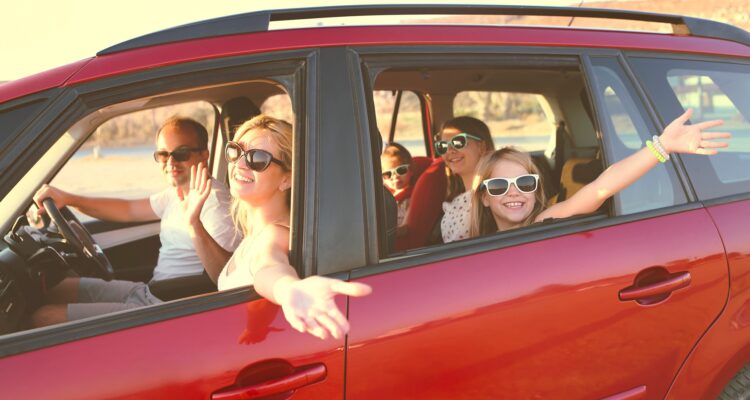The driver training experts at RED Corporate Driver Training have produced a definitive guide to safer, less stressful holiday driving.
According to Evan Morris, Training and Development Manager at RED Corporate Driver Training, even the most experienced drivers can find those long holiday journeys among the most stressful and tiring trips they make.
“By their nature, long summer holiday drives are just not something drivers experience much. Even if they do a lot of miles for work, they aren’t used to the extra factors involved such as family, heat, heavy holiday traffic and unfamiliar locations,” said Evan.
“So we’ve produced these tips to help drivers cope with some of the most stressful journeys they do, and ensure the start to their holiday is happy, not full of horror.”
Look ahead in heavy traffic
It’s easy when in heavy traffic to lock your focus on to the car in front and only react to what it does. But as traffic speeds up and slows down, you can keep moving more smoothly by watching as far ahead as possible too – as everyone comes to a halt, slow down far earlier and try to keep moving so that you reach the end of the queue as it begins to move again. By focusing only on the car ahead, driving becomes much more reactive and stop-start, which not only is less safe but uses more fuel.
Lane discipline
On holiday, you might well end up driving on unfamiliar country lanes, so look out for things such as shadows and telephone poles to help predict what’s ahead. Look for where the sun is, and therefore where shadows of oncoming vehicles might be: you’re likely to see the shadow before the vehicle on a bend – that extra second or two warning can be a massive help. Also, watch where telephone and power cables go: they usually follow lanes and so point to where upcoming junctions and bends might be. Also, keep a close eye on the side of the road. Veering off to avoid oncoming vehicles risks hitting potholes or solid objects hidden by bushes. Leave the road only when you are absolutely sure it is OK to do so.
Pack like a pro
If you’ve got a car packed to the rafters, make sure everything is secured and isn’t going to move about. The last thing you need is bags flying forward under heavy braking or sudden direction changes and hurting occupants. Also, objects rolling about can distract you from your driving. Try as much as possible to create a view out the back window, but also pack any emergency items of essentials last, and within easy reach. If you have to get hold of key items by the side of the road, you don’t want to turn the area around your car into what looks like an impromptu jumble sale.
Fluids for you and your car
Before you leave, make sure all the fluids in your car are topped up – especially screenwash. A windscreen of squished flies against a low, bright sun, can seriously impair your view. And remember some water to hydrate yourself – this will help you remain more alert.
Take action on distraction
A car full of children (or other family members!) can be a serious distraction when you’re driving, and is very dangerous on a long, busy journey. Set some ground rules around this: reserve the right to not reply if you need to concentrate, and not be nagged for it.
Plan routes and rest
Don’t just switch the sat-nav on and follow it unthinkingly. While most sat-navs now factor in things such as traffic problems and time lost through roadworks, also think about what you need as a driver. Where do you want, or need, to stop? Would a slightly longer route with quieter roads suit you? What are your alternatives if the traffic gets really heavy? It’s worth having a plan for all of this, so you’re not making stressful decisions at the last minute while driving.
Company car policy
Do check your company car policy regarding permissions or requirements stipulated for towing trailers and caravans, and make sure you understand the additional safety measures and any different speed restrictions in place. Your company will also likely have a policy regarding taking company vehicles abroad – so please check you have the necessary approvals and any paperwork such as a VE103B form if you’re taking a company vehicle abroad.
Spare key
If you’re travelling a distance from home, make sure you take a spare set of car keys to avoid staying longer on that beach searching for your original set! Replacing lost or damaged keys can be time consuming and often costly.
More cyclists/pedestrians on the road
The better weather encourages more cyclists, runners and pedestrians on to or near roads, and some hiring holiday cycles for fun might not be as clear on the Highway Code. Share the road patiently and safely so everyone can enjoy their well-earned break.
And finally… EV charging
There’s plenty of conversation currently about the provision of public charging points, so make a practical plan regarding charging and build in contingency locations if the original one is busy/broken.








